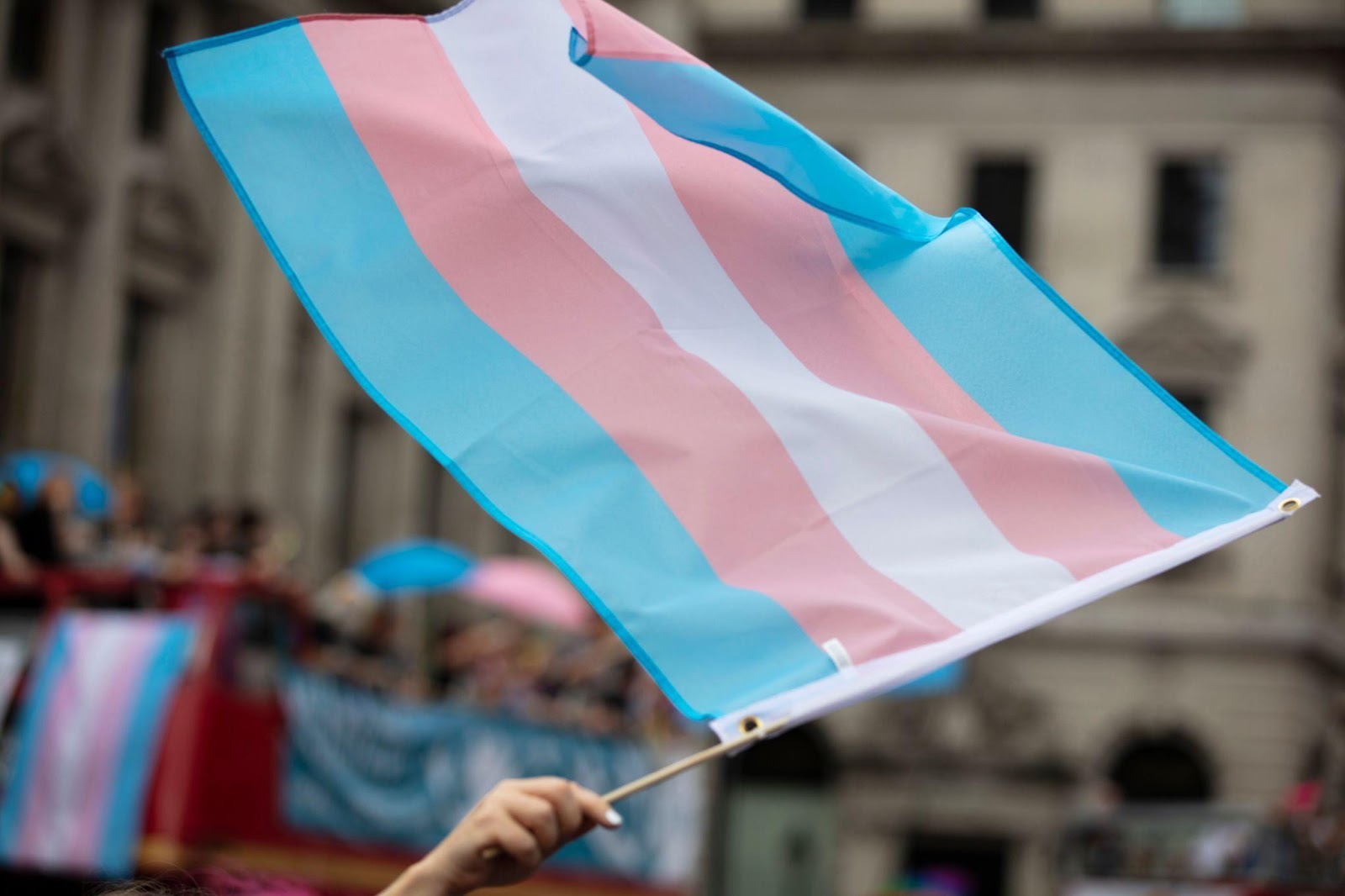
A Gender Affirmation Resource: Transgender Terminology
By Beverly Fischer on February 9, 2021
Gender Affirmation Back to Blog
Back to Blog

 Major life changes come with shifts in the language we use, whether it’s the titles we use for ourselves or even the names we bear. Making a gender transition is right up at the top of that list of changes! The words we use for anything to do with being transgender make up an entire vocabulary– one that can be confusing at first. The good news is that with a little effort and some guides like this one, you’ll quickly be in the know.
Major life changes come with shifts in the language we use, whether it’s the titles we use for ourselves or even the names we bear. Making a gender transition is right up at the top of that list of changes! The words we use for anything to do with being transgender make up an entire vocabulary– one that can be confusing at first. The good news is that with a little effort and some guides like this one, you’ll quickly be in the know.
Understanding the Difference– Sex, Gender, Orientation
One of the things that people struggle with the most is understanding which word to use to describe different aspects of gender and sexuality. Let’s dive in and clarify those words first:
- Sex: Often, people say “gender” when they mean “sex”– in other words, they’re basing gender on genitals. Sex or anatomical sex describes what genitals, chromosomes, and other characteristics like body hair and hormones someone has.
- Gender: On the other hand, “gender” is a social or cultural idea made up of the behavior or personality or feelings that get assigned to people. Sex and gender get confused because very often gender roles in a society are assumed based on sex, but gender is not bound to sex.
- Sexual Orientation: This is about what gender(s) someone is romantically or sexually attracted to. A trans person can be straight, gay, lesbian, bi, pansexual, asexual, demiromantic, etc, just like someone who isn’t trans.
- Gender Identity: This is the “inside” of gender– how someone experiences their gender within themselves, regardless of how they look or dress.
- Gender Expression: This is the “outside” of gender– how someone shows their gender through their clothes, hair, makeup, and other physical signs, which can also include chest or breast shape, amount of body hair, and facial features that can be altered medically.
For a helpful reference, especially for someone who’s struggling to understand, share the Genderbread Person. It’s a simple and clear teaching tool that’s widely used.
What Is and Isn’t Transgender
There are also a number of words that can be used to describe people’s gender and their relationship to their own gender, and they’re not always interchangeable! Here are the most common ones:
- Transgender: Someone whose gender is different from the one they were assigned at birth (usually the one most often assumed based on their sex). Someone who’s trans is “really” trans regardless of what their genitals or bodies look like or what their gender expression is.
- Cisgender: This means someone whose gender identity matches the one they were assigned at birth usually based on their sex.
- Nonbinary: This describes folks who don’t experience gender as a spectrum of “man” and “woman”. They may feel like their gender is a mix of those, or that it’s outside our typical names for gender. Nonbinary folks are trans, but not all trans people are nonbinary.
- Agender: Someone who doesn’t have a gender identity at all and exists outside the idea of gender.
- Cross-dresser: This is someone who enjoys dressing in clothing associated with a gender other than their own. Sometimes this is political, sometimes it’s just for comfort or style, sometimes it’s a sexual fetish– but it’s not the same thing as being trans.
- Genderqueer: Someone who feels their gender is fluid and shifts among gender identities and expressions.
- Intersex: This describes a specific situation where someone’s genitals, chromosomes, and secondary sex characteristics are different at birth from “male” or “female” and may be a mix.
There are some words that are now considered insulting or offensive that aren’t used anymore and should be avoided. Tr**ny is a slur– don’t use it. “Transsexual” and “transvestite” are outdated and somewhat offensive. “Hermaphrodite” (intersex) is also a word to retire. And remember that “trans” or “transgender” is an adjective, not a noun– someone is not “a transgender” but “a transgender person/woman/man/human”.
Pronouns
Many nonbinary folks in particular will use they/them pronouns, and it’s usually a safe bet to refer to someone as “they” if you don’t know their gender. You may also hear some unusual ones like “zie/ze/sie” or “hir”. Those are less common than they once were, but are usually used by someone who feels that gendered pronouns don’t fit their gender identity.
Medical speak
Here are a few terms related to medical procedures that are common among trans people. Remember that medical and surgical interventions aren’t required for someone to “really” be their gender.
- Gender affirmation surgery: Refers to any surgery that aligns someone’s body with their gender expression. “Top surgery” means chest resculpting, breast reduction, or breast enhancement. “Bottom surgery” means resculpting one’s genitals. Body Sculpting can include some kinds of plastic surgery like tracheal shaving, liposuction or facial resculpting.
{{cta(’99c90bc6-2cd2-4f84-a288-655094a1fcbf’)}}
- Gender dysphoria: The way that the difference between someone’s gender and the gender that other people perceive/assume about them negatively affects their mental health and sense of self. It’s a very real form of suffering that deserves compassion and care.
- Body dysmorphia: The feeling that one’s body is deeply flawed or “wrong”, creating emotional and mental suffering. Both cis and trans people can experience this.
- Hormone therapy: Administering regular hormone treatments like testosterone or estrogen to help someone’s body change to fit their gender expression– for example growing facial hair or altering the pitch of their voice. Hormone therapy can be done separately from any surgery.
Slang and Niche Words
Finally, let’s cover some terms you might hear in casual conversation and help you know when and if to use them:
- Deadname: It’s very common for a trans person to give themselves a new name when they transition publicly, and their old name is called a “deadname”. Never ask for or use someone’s deadname.
- FTM or MTF: These stand for “female to male” or “male to female”. They’re still very common, but more and more trans people don’t like them because it implies that they changed gender instead of embracing the gender they always were.
- AFAB or AMAB: “Assigned female at birth” or “assigned male at birth”, these terms are a way of talking about gender and sex that are most useful for avoiding transphobic assumptions– for example, instead of saying “women menstruate”, you might say “AFAB people usually menstruate”.
- Two-Spirit: This is a term that specifically describes someone of Native American/First Nation heritage and should not be used by white people to describe themselves.
- Drag/drag king/drag queen: These all mainly refer to a kind of performance art in which the performer’s stage persona is based on gender expression in some way. Trans people do drag, but so do cis people.
- Cisnormative or genderism: These describe the way that many aspects of our society treat being cisgender as superior to being trans, and that oppress, marginalize, or harm anyone who isn’t cisgender.
It may seem like there’s a lot to remember, but taking the time to learn shows the trans people in your life that they are important and valid in your eyes– and that’s one of the greatest gifts you can give to someone you love. If you or a loved one is ready to take the next step in gender affirmation surgery, give us a call or click the button below to contact us today!
{{cta(’28e34559-ada6-40ad-93e4-59f5fe0449f8′,’justifycenter’)}}
Dr. Beverly A. Fischer is passionate about her role as a leading female plastic and cosmetic surgeon in Baltimore, Maryland and beyond. She believes that plastic surgery makes a positive, life-changing difference, whether you’re renewing your body, face, and skin or embarking on an entire gender transition.
Reach out
We are happy to answer any questions you have. Use the form to request a consultation or more information about specific services. A member of our team will will contact you shortly.
Contact Us



